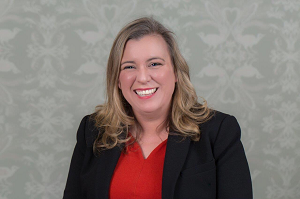Yesterday a group of Workplace Relations Specialists met for Worklogic’s Masterclass on Drafting Allegations. The group was fantastic and extremely knowledgeable and the conversations about various challenges faced were fascinating.
The participants had a lot of fun unpicking the hypothetical scenario for the training and had lots of opportunity to practise skills in interviewing for allegations and drafting allegations that are clear, precise and procedurally fair.
The workshop was deeply practical and participant based: – there were spirited debates, probing questions and forensic delving into the nitty-gritty detail. Participants discussed questions about particular areas of concern to them and their organisation.
Here are a couple of key lessons from the afternoon:
1. A well drafted set of allegations forms the basis for a procedurally fair investigation.
One of the important things discussed at the Masterclass was the importance of returning to first principles of procedural fairness over and over when considering all of the twists and turns that a workplace investigation can take.
Procedural fairness is made up of two main pillars – the ‘fair hearing’ rule and the ‘no bias’ rule.
- The ‘no bias’ rule means that the investigator needs to take care in drafting allegations that they do not contain any embedded judgements or inflammatory language that might indicate that the investigator is biased, or reasonably give someone else an indication that an investigator is biased.
- The ‘fair hearing’ rule means that the investigator needs to ensure that the allegations cover the case that the respondent has to answer and provides them with enough information.
2. Interview technique is extremely important!
We usually first encounter a workplace allegation in a letter of complaint or a first interview with a complainant. The initial complaint will usually look very different to the final allegations which are capable of being put to the respondent.
Interviewing a complainant in order to get details of the complaint in order to takes care and specific skills.
3. Different Lenses when Drafting Allegations
It can be really helpful to look at drafting the allegations through different lenses:
Organisation Lense: allegations give the organisation a chance to understand the complaint. The complaint may contain serious allegations about the behaviour of an employee. These allegations, if proven may lead to disciplinary action or even termination of the employment of the employee.
In this case, it is reasonable and appropriate to proceed to a formal investigation. On the other hand the allegations may be very general and not contain any direct allegations of wrongdoing against the respondent. In this instance, an organisation may decide that the appropriate course of action is to do further training or to undertake a workplace review of the area.
Investigator Lense: allegations allow the investigator to understand the scope of the investigation. The allegations will enable the organisation to understand what sort of complaint they are dealing with. Is it a relatively contained complaint around behaviour at one particular meeting, or does it involve a dozen complainants, three respondents and complaints over the course of several years?
Understanding the scope of the investigation means that an organisation can plan to minimise the damage to the work team and has an idea of how long the investigation will take and what costs will be involved.
Clear allegations will set the parameters for the rest of the investigation. They will determine the evidence that needs to be gathered, which witnesses need to be spoken to and who are the respondents to the complaint. This clarity of scope leads to an efficient, cost effective investigation.
Respondent Lense: Allegations provide the Respondent with an understanding of the case they should respond to. This is the most important function of the allegations.
Procedural fairness demands that a respondent be informed that an investigation into their behaviour is taking place and that they be given an opportunity to respond to the case against them.
It was my pleasure to teach such a bunch of intelligent, committed participants and I’m looking forward to doing it all again at the Sydney Drafting Allegations Masterclass next week on June 3! There are still a couple of spots left, so register now!
About Jodie Fox


Jodie Fox brings to Worklogic a wealth of experience gained working with clients from a diverse range of industries. Previously working as an employment lawyer at a top-tier law firm for almost 10 years, Jodie worked closely with a host of large and small clients.
Worklogic works with employers to resolve workplace complaints and create a positive culture at work. Please contact Jodie for an obligation free consultation via email or call (03) 9981 6558.


